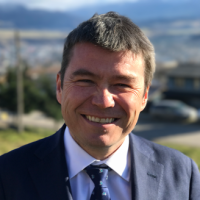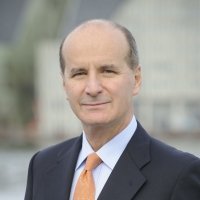Economic Growth and Environmental Protection: Latin America’s Role in Global Conservation Efforts
In a new major study from Cambridge University, more than 100 international economists and scientists demonstrate that the economic benefits of large-scale conservation far outweigh the costs. According to the report, “Protecting 30% of the Planet for Nature,” increasing land and marine protected areas could lead to an average of $250 billion in increased economic output each year and an average annual increase of $350 billion in improved ecosystem services.
Latin America and the Caribbean represent the world’s most biologically diverse region. Two countries, Costa Rica and Chile, have taken the lead in implementing large-scale conservation efforts that have won world-wide acclaim. Costa Rica has pioneered ecosystem service payments that have allowed forest cover to thrive; and Chile has led the region in the scope of both land and marine conservation initiatives.
How might conservation-based solutions in Latin America be part of a “new normal” model of development for confronting the economic challenges posed by COVID-19? How can actors in government, the private sector, and civil society work together on these critical issues?
Selected Quotes
The Honorable José María Figueres, Former President of Costa Rica
“This is a critical decade: what we do between 2020 and 2030 will make or break our possibilities in the next decades. We need to decouple carbon emissions right now from development that have always been parallel, and allow development to move forward while carbon emissions come down so that we can address the two major challenges we have today: one, poverty and inequity, for which we have a lot more economic might and technology to fight. And the other one of course, climate change.”
Dr. Sylvia A. Earle, President & Chair, Mission Blue
“What should we be doing? Yes, fully embrace at least protection for 30% of the planet by 2030, and there is cause for hope because look at what Chile has already done in the coastal areas as well as on the land. Private and public support. Governments coming together for the first time in a way that, go back 50 years ago would seem totally impossible, but we don’t have another 50 years, or maybe even 10, to take to heart, to take seriously, the knowledge that we now have that we are in trouble. Earth is in trouble. The Earth systems that keep us alive … they are very much at risk.”
Kris Tompkins, Cofounder and President, Tompkins Conservation
“We get credited a lot for somehow saving these rivers, but this is the point about Chile: Chileans, the citizens of Santiago saved that river, those rivers, because at a time, probably the first since Pinochet left office, there were 100,000 people out marching in the streets of Santiago … this was extraordinary, and I think it was a tectonic shift in the way that people would think about themselves thinking about being responsible for what happens in their country, and that they do have a voice, they sort of found their voice again.”
Dr. Anthony Waldron, Cambridge University, Lead Consultant 30 x 30 Economic Study
“What happens to economic output if we expand protected areas to 30%? … economic output, in the rural and coastal sectors, would increase globally. Climate change and ecosystem loss would slow, and additionally, in terms of economic growth, we found that protected areas as an economic sector would have a growth rate of some 8-10 times more than all of the alternatives.”
Maximiliano Bello, Global Fellow
“High seas are unprotected. There’s still no way to protect them. There is no regulation. There is no way that we can create marine protected areas. Biggest part of the ocean is out there and it’s being taken for free basically from the countries that are highly subsidizing those fisheries.”
Introduction

Moderator

Panelists





Senior Advisor, Mission Blue
Hosted By

Latin America Program
The Wilson Center’s prestigious Latin America Program provides non-partisan expertise to a broad community of decision makers in the United States and Latin America on critical policy issues facing the Hemisphere. The Program provides insightful and actionable research for policymakers, private sector leaders, journalists, and public intellectuals in the United States and Latin America. To bridge the gap between scholarship and policy action, it fosters new inquiry, sponsors high-level public and private meetings among multiple stakeholders, and explores policy options to improve outcomes for citizens throughout the Americas. Drawing on the Wilson Center’s strength as the nation’s key non-partisan policy forum, the Program serves as a trusted source of analysis and a vital point of contact between the worlds of scholarship and action. Read more


Environmental Change and Security Program
The Environmental Change and Security Program (ECSP) explores the connections between environmental change, health, and population dynamics and their links to conflict, human insecurity, and foreign policy. Read more



